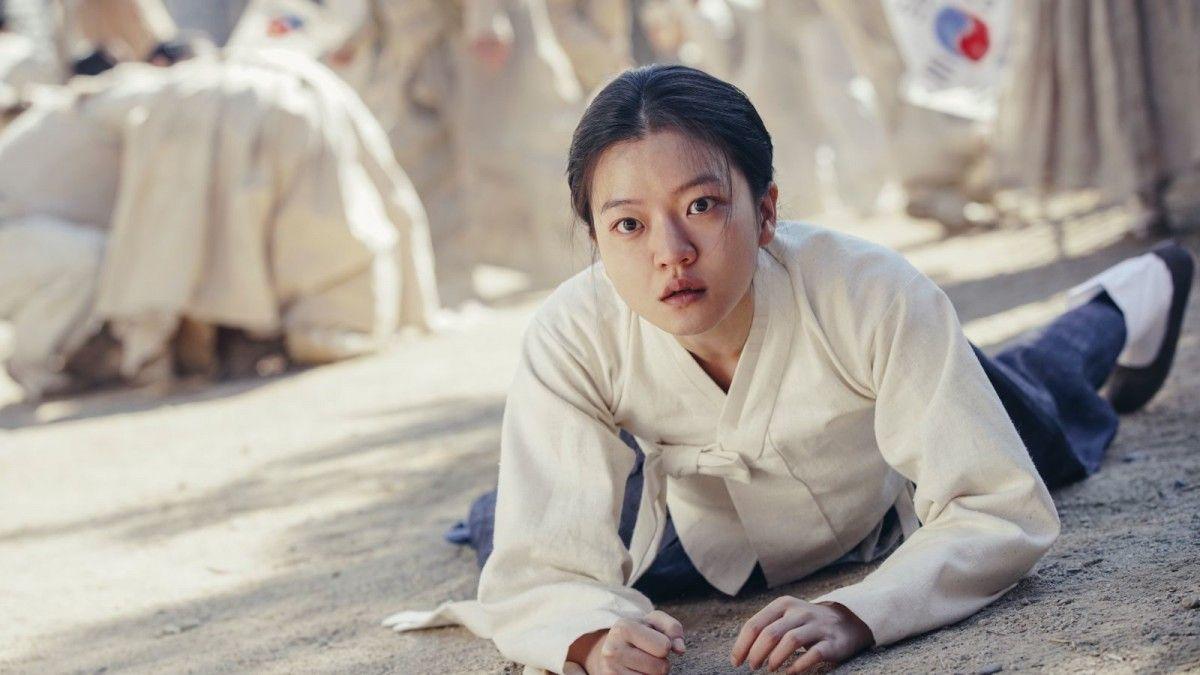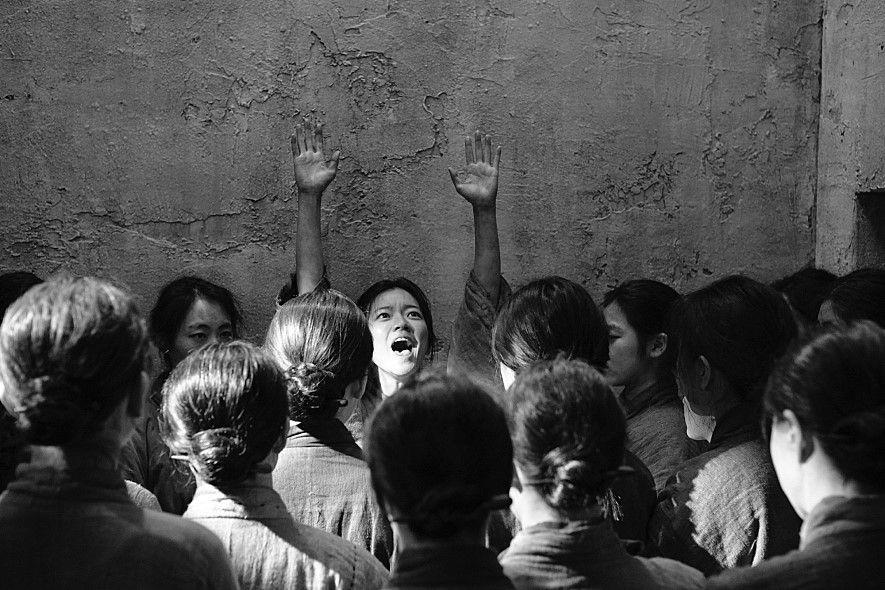
The first time I was exposed to actress Ko Ah-sung was with her role in Bong Joon-Ho’s hit film, Snowpiercer. She was an instant charmer on screen and was especially a thrill to see in Hong Won-Chan’s 2015 psychological murder thriller, Office.
Ko’s newest role to date is one of the most viscerally-charged to date with A Resistance, writer and director Jo Min-Ho’s fourth film. The film is based on the life and times of protestor Yu Guan-Sun who was incarcerated among more than 47,000 others throughout for protesting against Japanese annexation.
Our film takes us behind the drab, murky walls of Seodaemun Prison where our first sight of our protagonist, once her headcover is removed, is that of a beaten and battered Guan-Sun. At this point, her initial sentence was five years and then cut down to three, during which she’s visibly no stranger to the rough ends of the Japanese penal system.
Guan-Sun is given a number and is soon locked into an already overcrowded cell – like all the cells in the facility which houses up to 3000 prisoners; it’s in these cells where they are forced to walk slowly in circles to keep their blood flowing and avoid swelling in their legs.
From then on, Yu’s first day would be only the start of one of the most traumatizing, transformative periods of her life. Her peaceful aversion to the Japanese wards inspires most of her cellmates to stand up and either chant or sing the Korean national anthem.
Despite this, she endures criticism from fellow inmates, and is often singled out for speaking out of turn in Japanese. She’s repeatedly harrassed and interrogated by the warden who at one point nearly beats her, and then has her hung with the front of her robe exposed as a means of testing her resolve against committing suicide. She is also forced to stand in a wall-cell for up to a week.
Nishida, a guard who has forsaken his Korean name, Choon-Young (Ryoo Kyung-Soo) tries to mitigate Guan-Sun’s interrogations in her favor, though the effect is very slim and does nothing to change the fact that he’s working for the enemy. There’s a brilliant exchange between Guan-Sun and Nishida regarding this, and her indelibity is just awesome here.
At this point, her cellmates are all sharing grave concern for her, knowing full well what she will do to be the example she’s setting. Throughout this period though, her bigger concerns are much ado with her brother’s well-being, and the date of the year. Her fellow inmates are curious to know why at one point – it matters, because for Guan-Sun, equal to her true resolve, she’s focused on the one thing she wants most.
The film is colored primarily black and white with flashbacks of her time before being imprisoned drawn in actual color. This is done on purpose for a more dramatic affect later in the film with the black and white filter used fittingly to illustrate life behind the walls and the underground cells and interrogation rooms of Seodaemun.
Ko’s performance serves as one of the most inspiring showcases I’ve ever seen in a biopic. Her role as Guan-Sun woke me up to something special as the centerpiece of a historical drama who grew up in a Christian family by the film’s account; One of my favorite lines is said by her in an exchange with her brother, Woo-Seok (Shim Tae-Young) in which they discuss the significance behind Jesus being naked on the cross – it’s a line I can certainly identify with, indicative of some pretty palpable writing on Min-Ho’s part. It’s also a scene that coalesces with an earlier scene in the film in which Guan-Sun is imprisoned.
There are key moments in A Resistance that will grip you as Guan-Sun endures and retains her resilience. It’s a seed planted firmly into the soil that is the cell she’s in, and as the film progresses, watching that seed sprout is a thing of cathartic beauty to a certain degree. You’ll know it when you see the Japanese manager of the prison react to this.
We’ve seen this movie before in many a drama, be it a school or a prison. It’s nice to know that Min-Ho covers his bases here with A Resistance, a story nary known by Westerners like myself but also featuring an actress who has already left something of an impression on our moviegoing demographic.
With Korean history proving to be a vast source for Korean film and television material, I was purely fascinated by this particular story. It is one of horrible misdeeds at an equally terrible period of world history, and also one whose central figure remains devout in her exemplary tone and ideals, even though she herself is human and, at one point, expressed her own shame, pain and guilt.
It was fascinating seeing the sisterhood she’s able to build around her against all odds and oppresive manner by which she is treated, even to the point of being beaten so gruesomely that she starts bleeding from her insides. I was riveted by Ah-Sung’s performance, while in awe of A Resistance as being a point of world history that a lot of us aren’t ever taught in schools.
A Resistance provides a chilling window of life behind bars of a Japanese prison, unbound by a woman who would not be moved. If the film’s testimony presents anything, it told me a story about a heroine whose faith and doubt never got in the way of her belief in people. This goes back to one of my favorite lines in the movie, but I’m not gonna quote it here. As soon as A Resistance is made legitimately available, you’re just going to have to see it for yourself.

